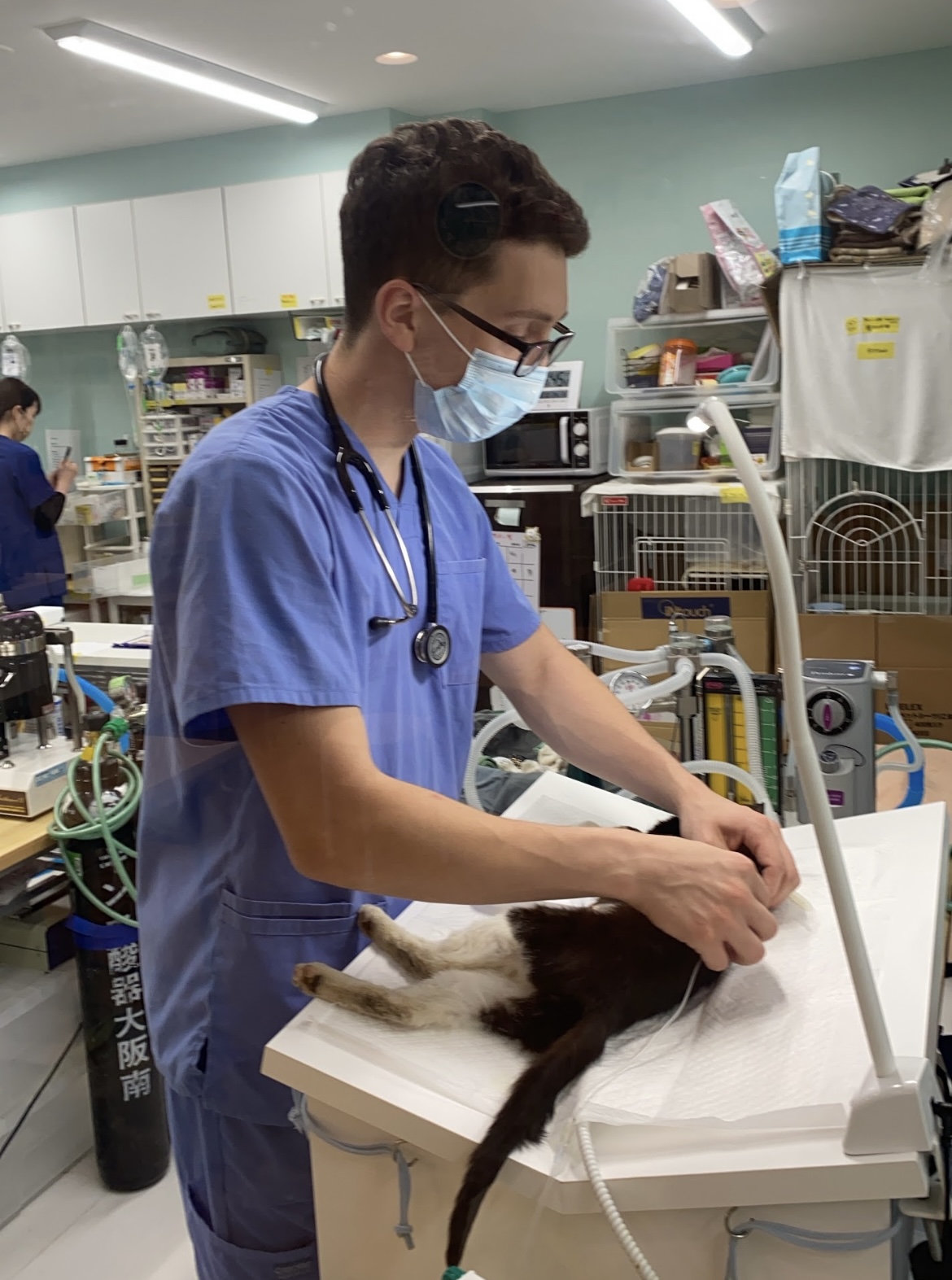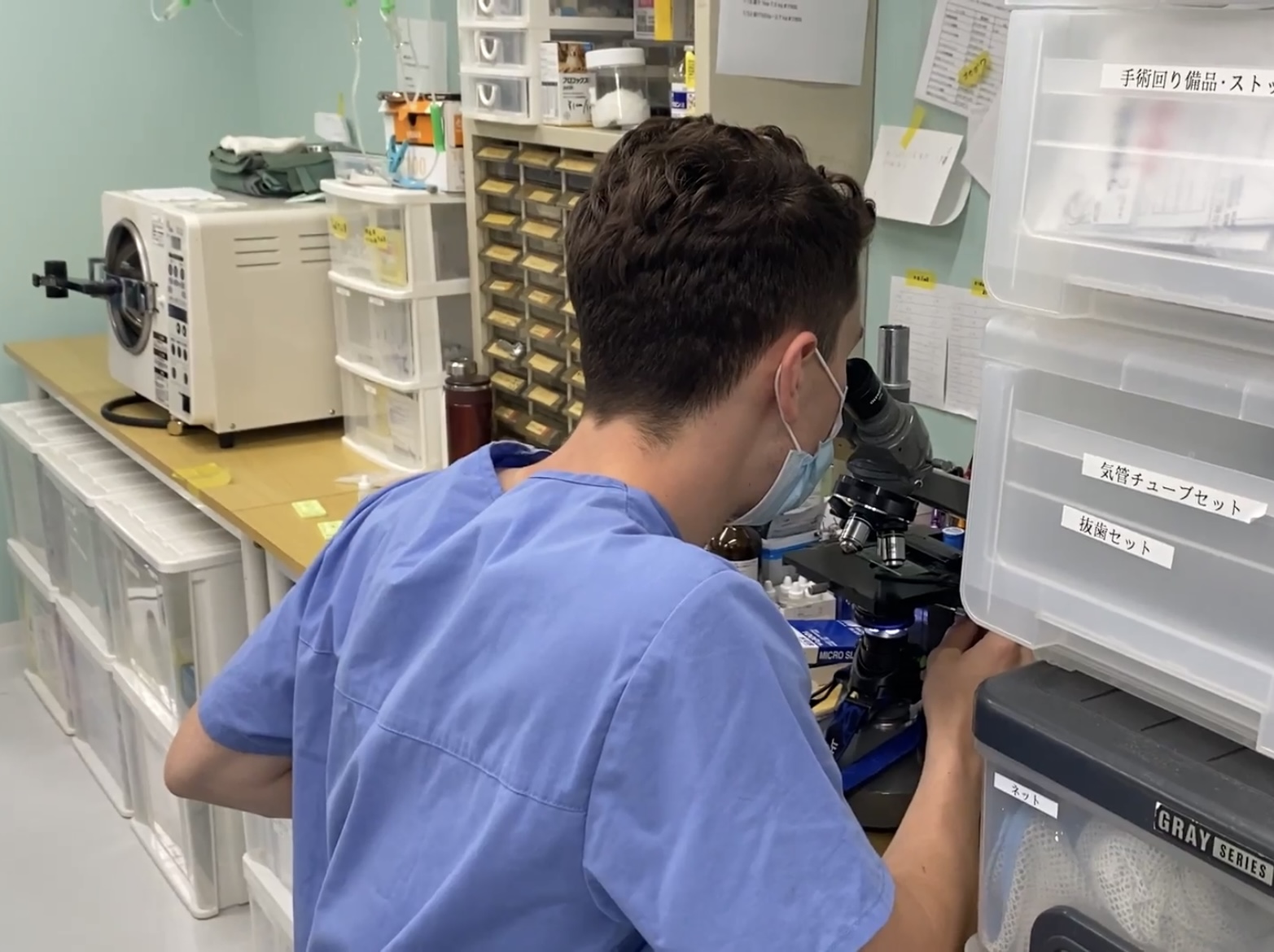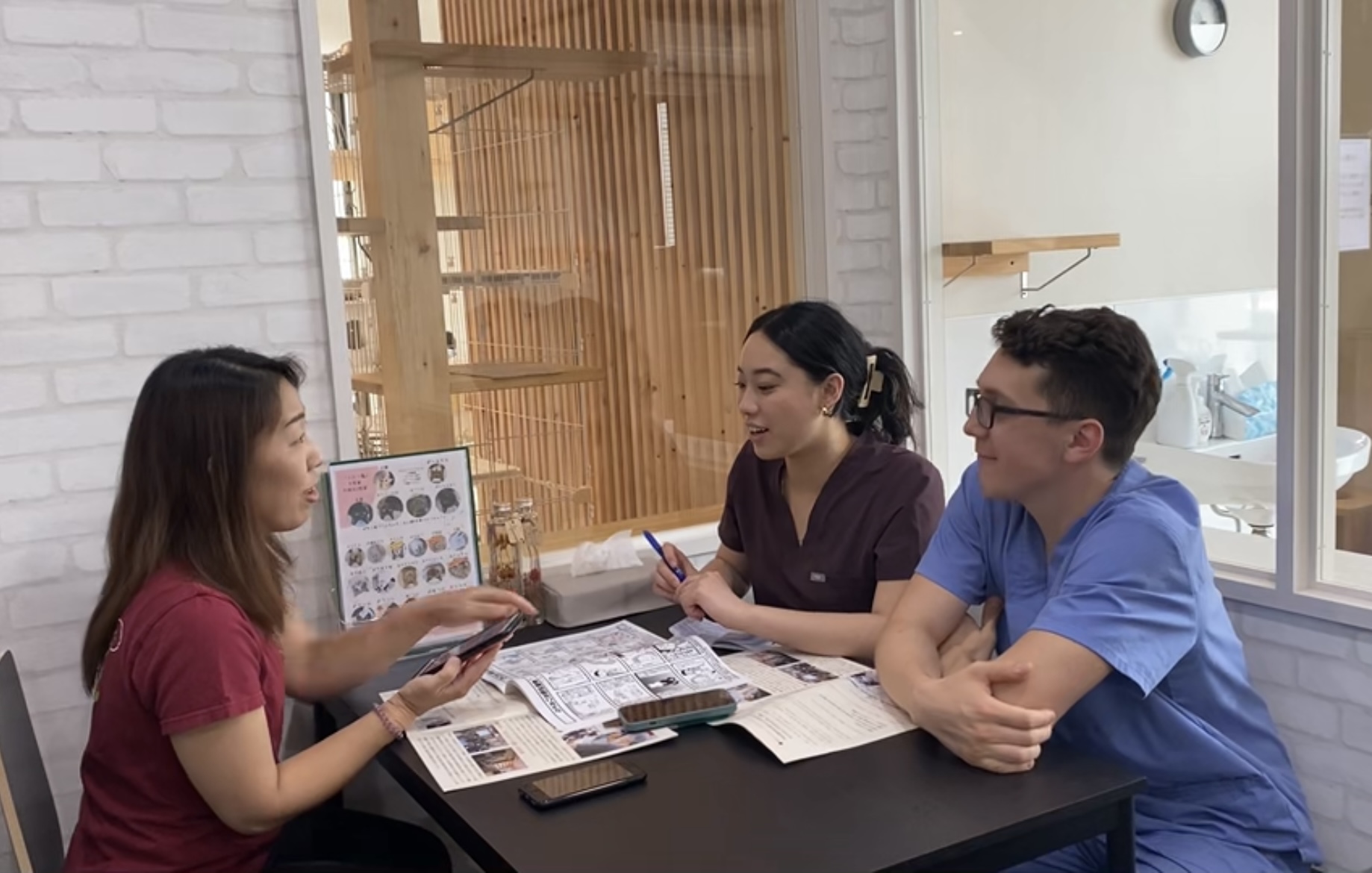Luke Mase
My six weeks in Japan included an unforgettable medley of veterinary and cultural experiences that opened my eyes to the world across the Pacific. I was so fortunate to work under my wonderful PI, Dr. Hart, and travel with my amazing research team including Juliann Chou from my class and Kai Miura, my high school best friend from Japan. Together, we uncovered the busy streets of Tokyo, Osaka, and Kyoto as well as the quiet serenity of the Japanese countryside including lakes and Kai’s home fishing village, Oga. There, we stayed with Kai’s family and resided at the Buddhist Dairyuji temple of which his father was the third-generation priest.
After returning to Tokyo, we learned and assisted with the trapping operations of the Kawakuji Animal Rescue. This team of volunteers, comprised of international and domestic residents, were kind enough to show us their facilities and share their experiences in interviews that we conducted for research. We learned from them not only how to trap feral cats but how to do so in a way that was most cohesive with Japanese society and concerned cat caregivers.
Next, we traveled to Kyoto where we spent weeks providing the husbandry and care of the Japan Cat Network’s (JCN’s) TNR cats. While volunteering and living on the JCN’s premises, we worked alongside international volunteers from all six continents. While most of our time with the JCN involved cat care, we also helped build a cat café for their program. When we were not volunteering for the JCN, we were conducting research interviews with vets, TNR volunteers, and local policymakers.


Kai’s translation when we were in clinics, performing interviews, and experiencing the cultural customs allowed us to be culturally sensitive amidst his non-confrontational people. He also showed us how their society functions economically, socially, and politically. Through our travels and project, we quickly witnessed Japan’s emphasis on conformity and saw how community impacts decisions such as animal care and ownership. Given how grassroots shelter medicine and TNR are in Japan, each of the inspiring residents involved really were pioneers in a culture that embraces conformity. Interviewing these pioneers and more fundamentally understanding Japanese culture and policy helped refine our survey and research objectives throughout the trip. Not long after, we published our research survey. Our survey questionnaires are still being collected to this day in order to assess Japanese Public Perceptions of Trap Neuter Release as an alternative to culling feral cat populations. Our surveys also assess the perception of pets on public transportation, and specifically how the ban of large-breed dogs on public transport might negatively impact access to veterinary care.
For our final part of the trip, Jay and I volunteered with a Spay/Neuter Clinic that performed countless TNR surgeries each day. This cat café and neuter clinic enterprise was run by an inspiring veterinarian, Dr. Hashimoto. She taught us how she uses her own educational cartoons and illustrated children’s books to educate the youth and adults of Japan on the benefits of TNR. In addition to interviewing her, we had the privilege of working alongside her and her team as we performed cytology, prepared cats for surgery, and assisted with anesthesia while shadowing.
Japan and its residents are amazingly different from Americans. The contrast offered me the ability to self-reflect and recognize the strength and comfort of a heterogeneous culture. This trip also taught me that while I enjoy research, I do not think it would suit me for a long-term career. This trip did however spark a stronger interest in me to learn more about sociology, anthropology, culture, and TNR. These are all things I plan to commit myself to forever.

